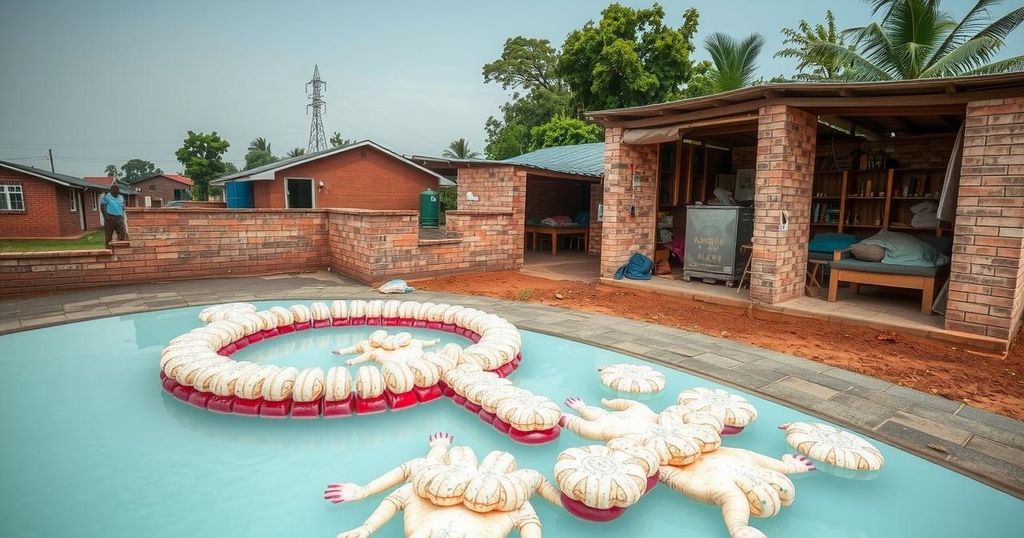Lifestyle
AFRICA, AWEIL, AZ, BAHR EL GHAZAL, DISPLACEMENT, HEALTH, HUMANITARIAN AID, INTERNATIONAL AID, JUBA, LU, LUETH, MICHAEL MAKUEI LUETH, MINISTRY OF HEALTH, NEWS, NEWS. AZ, NORTH AMERICA, NORTHERN BAHR EL GHAZAL, OF HEALTH, REFUGEES, RENK, RENK COUNTY, RUBKONA, RUBKONA COUNTY, SOUTH SUDAN, SOUTH SUDAN MINISTRY OF HEALTH, SUDAN, UN, UNITED STATES, UNITY, UNITY STATE, WHO
Michael Grant
0 Comments
Cholera Outbreak in South Sudan Results in Nearly 60 Fatalities
South Sudan faces a cholera outbreak with almost 60 deaths and 6,000 cases reported since October 28. Vaccination efforts have begun in response, particularly in IDP and refugee camps, where the disease poses a greater threat. The government is urging improved sanitation and has called for more vaccine supplies to manage the crisis.
A cholera outbreak in South Sudan has tragically resulted in nearly 60 fatalities since it was first reported on October 28. According to Michael Makuei Lueth, the Minister of Information and Communication, the outbreak has exacerbated the health crisis faced by the nation, with approximately 6,000 cases documented to date. The government, alongside United Nations agencies, has commenced vaccination efforts to combat the spread of the disease, focusing particularly on internally displaced person (IDP) camps across various regions, including the capital city Juba and Rubkona County in Unity State.
The cholera outbreak is believed to be particularly severe in areas with high concentrations of vulnerable populations, such as refugees who have fled from ongoing violence in Sudan. The situation is further complicated by limited access to clean water and inadequate sanitation facilities, which increase the likelihood of disease transmission. Lueth emphasized that increased health measures, including a clean environment and proper food safety practices, are crucial in mitigating the outbreak’s impact.
The Ministry of Health has indicated that it is in urgent need of additional vaccine supplies to address the ongoing crisis effectively. Current vaccinations have been prioritized for refugee camps and areas most affected by the outbreak. Additionally, the Ministry has shared preventive health messages to encourage residents to maintain hygiene standards and consumer safety as protective measures against cholera.
The cholera outbreak in South Sudan is part of a broader humanitarian crisis exacerbated by conflict and displacement, particularly stemming from violence in neighboring Sudan. With over 880,000 individuals fleeing into South Sudan since April 2023, many have found refuge in overcrowded camps where the lack of adequate sanitation and clean water has led to increased vulnerability to waterborne diseases like cholera. The outbreak’s severity is compounded by the lack of basic health resources, which impedes the government’s response efforts and highlights the urgent need for international assistance.
In summary, South Sudan is grappling with a severe cholera outbreak that has led to nearly 60 fatalities and over 6,000 reported cases. The government is actively working with UN agencies to provide vaccinations, particularly to high-risk populations such as refugees and internally displaced persons, while emphasizing the importance of hygiene and sanitation practices. With ongoing challenges in accessing proper healthcare and clean water, the situation remains critical, necessitating continued international support and intervention.
Original Source: news.az




Post Comment